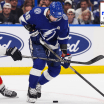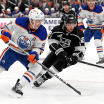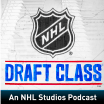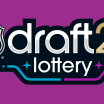NHL salary cap to remain same next season
$81.5M limit could increase going forward under new CBA, which runs through 2025-26
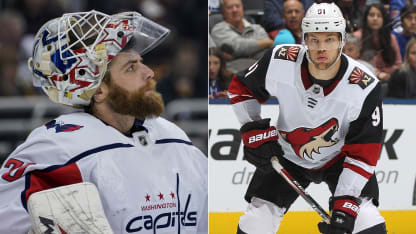
The 2020-21 salary cap, set the same as this season, was part of the four-year extension to the NHL/NHLPA Collective Bargaining Agreement ratified by the Board of Governors and the NHL Players' Association on Friday.
The CBA will run through the 2025-26 season with an escrow provision that could extend it through the 2026-27 season.
The Board of Governors and NHLPA also ratified the NHL Return to Play Plan for this season, including training camp beginning Monday and the start of the Stanley Cup Qualifiers on Aug. 1.
RELATED: [Edmonton, Toronto chosen as hub cities | CBA and Return to Play FAQ]
The free agency period this offseason will begin after the 2020 NHL Draft (scheduled for Oct. 9-10) and Stanley Cup Final are completed.
Defensemen Alex Pietrangelo (St. Louis Blues) and Torey Krug (Boston Bruins), forward Taylor Hall (Arizona Coyotes), and goalies Braden Holtby (Washington Capitals), Robin Lehner (Vegas Golden Knights) and Corey Crawford (Chicago Blackhawks) are among the players who can become unrestricted free agents after this season.
The extension eliminates the free agent interview period that was allowed as per the terms of the previous CBA. Previously, teams were allowed to speak with and begin to discuss parameters of a contract with pending free agents in the days following the NHL Draft leading up to the opening of the free agent signing period on July 1.
Players who have a contract that expire after next season will be allowed to sign a contract extensions starting July 13. Among the players eligible to do so are Capitals forward Alex Ovechkin, Bruins goalie Tuukka Rask, Anaheim Ducks center Ryan Getzlaf, and Colorado Avalanche forward Gabriel Landeskog.
The salary cap could grow incrementally following next season provided hockey-related revenues begin to recover from losses created by the impact of the coronavirus, which caused the season to be paused March 12.
The cap will remain at $81.5 million until hockey-related revenue surpasses $3.3 billion for the previous season. The salary cap won't rise more than $1 million until HRR reaches $4.8 billion unless the NHL and NHLPA mutually agree to inflate it in excess of $1 million.
Once HRR reaches $4.8 billion, the cap could increase by $2 million per season and transition to a formula-based calculation for establishing the cap for the 2023-24 season and beyond. As an example, the 2023-24 salary cap would be calculated using HRR results from 2021-22 and 2022-23.
The NHLPA ability to artificially inflate the salary cap as high as five percent is eliminated.
"We've agreed on how the cap will be set for all six years of the collective agreement," NHL Deputy Commissioner Bill Daly said Saturday, "and the inflator that had previously existed in the Collective Bargaining Agreement will not apply subject to the other inflators that we've agreed to as part of our new agreement."
Escrow, a percentage withheld from player salaries and placed in an account that is used to calculate a 50-50 split in HRR between the players and owners per CBA rules, will be capped at 20 percent for the 2020-21 season and go down from there, according to the terms of the extension.
"From our standpoint," NHL Commissioner Gary Bettman said Saturday," we believe that it was important to adhere to the fundamentals of our system but at the same time restructure it to moderate the impact on both sides, which is how we in effect dealt with the shortfalls that are occurring or are likely to occur with an attempt to smooth it out. I think we've accomplished that. ... I think it's fair to say that the percentage, had we not figured out a way to moderate and spread, would have been substantially more."
Escrow will be capped between 14-18 percent in 2021-22 depending on HRR from 2020-21, 10 percent in 2022-23, and 6 percent in the final three seasons of the CBA (2023-26).
"There's obviously going to be some pain here," NHLPA Executive Director Donald Fehr said. "There's obviously reduced revenue. We hope there won't be reduced revenue this season, but likely that that's possible anyway going forward, so what we tried to do was structure something that everybody could live with over time. But it's important to understand that it's over time. If revenue is less, revenue is less. The structure here allows these things to be worked out over time so that we hope we'll be in the very best position possible to get back to normal as soon as possible."
The money owed to the players for their final paychecks for this season, which were due to them April 15, will go in full to the NHL to fulfill escrow requirements. The full balance in the 2019-20 escrow account will be paid to the NHL within 15 days.
The CBA will automatically extend through the 2026-27 season (effective termination Sept. 15, 2027) if the escrow balance owed to the owners following the calculation of HRR after the 2024-25 season is between $125 million and $250 million.
For this season, the money in the Stanley Cup Playoff fund will double from $16 million to $32 million. The NHL and NHLPA agreed to split the cost of the $16 million increase, which means $24 million will go to the players.
The playoff fund will go down to $20 million next season and rise to as high as $24 million by the end of the CBA term.
Next season, players will defer 10 percent of their salary plus any applicable signing bonus money with the caveat that they will be made whole through three equal interest-free installments on Oct. 15 in 2022, 2023 and 2024, when escrow rates are capped at lower amounts.
"The players' contract, the cap hit, is based on average annual value of the contract," Deputy Commissioner Daly said, "and that remains the same so the cap treatment will be the same. When the dollars are paid, deferred, they will count against the players' share in that year."
Effective immediately, all no-trade and no-movement clauses will carry with the player if he agrees to waive it to be moved to a different team. Previously, no-trade and no-movement clauses negotiated into contracts became inactive if a player agreed to waive it and was moved.
Entry-level contract compensation will rise from $925,000 to $1 million through the course of the CBA. The NHL minimum salary will rise from $700,000 to $775,000.
Teams will not carry a salary cap charge for players ages 35 or older who sign a multiyear contract that features flat or ascending year-over-year compensation during the contract and retire before their contract expires. Previously, the cap charge remained if the player retired before his contract expired.
Teams will no longer be allowed to include conditions in trades that involve the future signing of the player to a new contract. The Ottawa Senators received draft picks from the San Jose Sharks when they traded defenseman Erik Karlsson that were conditional on Karlsson signing a contract with the Sharks. That will no longer be allowed.




